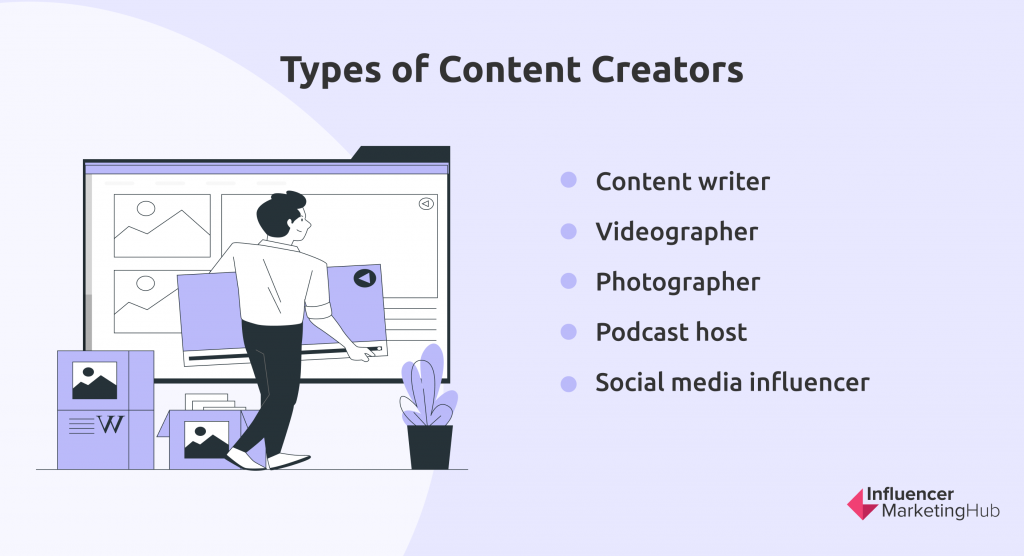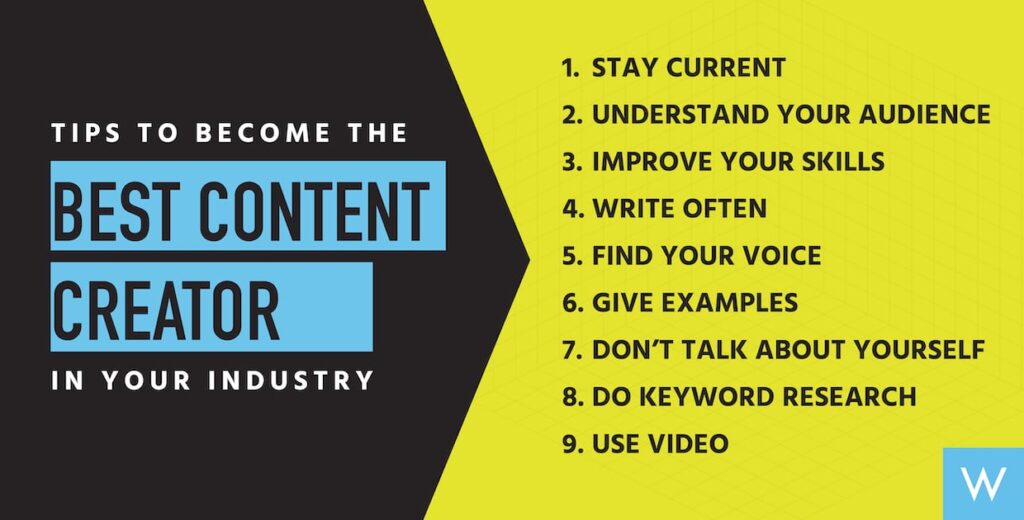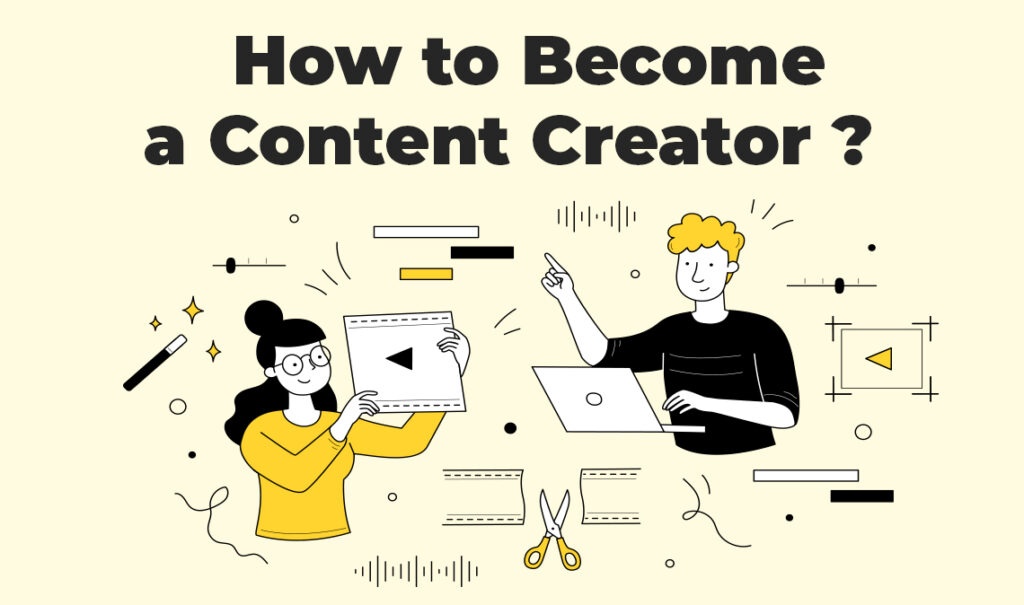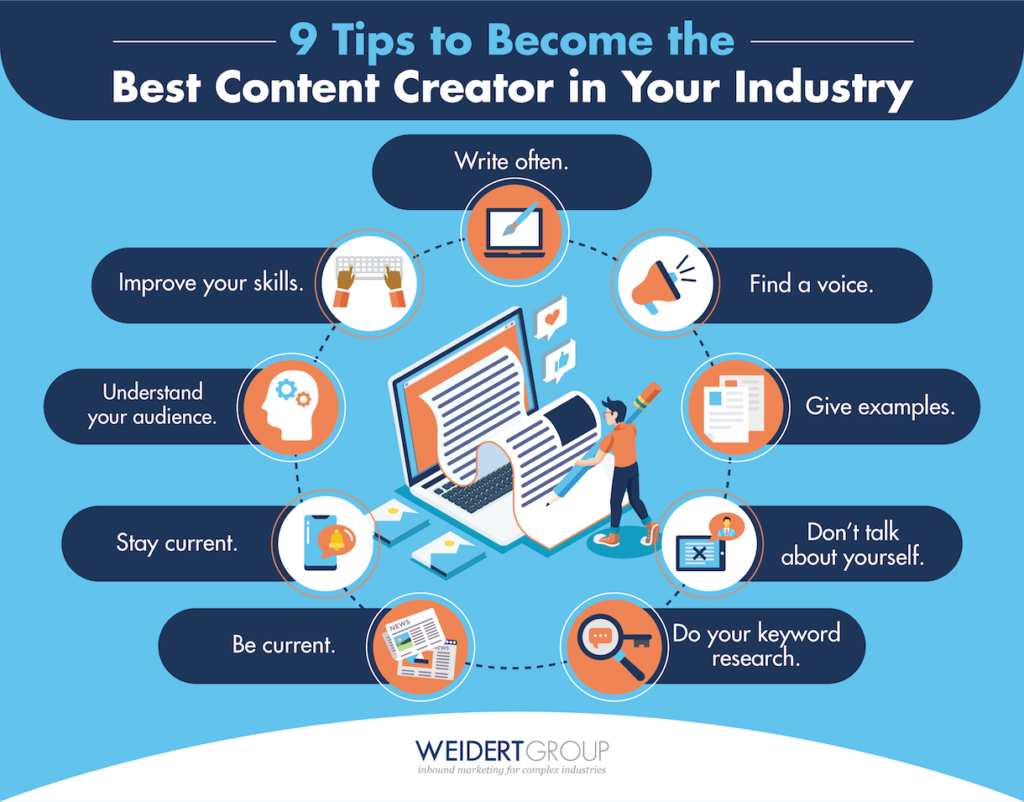
Have you ever wondered how people become content creators? Well, you’re in luck because in this article, we’re going to break it down for you! Becoming a content creator may seem intimidating at first, but with the right guidance and a little creativity, you’ll be well on your way to sharing your passion with the world.
So, what exactly does it take to become a content creator? First and foremost, you need to identify the niche or topic you’re passionate about. Whether it’s beauty, gaming, cooking, or even DIY projects, finding your niche will help you attract like-minded viewers who are interested in what you have to say. Once you’ve found your niche, start brainstorming ideas for the type of content you want to create. Do you want to make videos, write blog posts, or take captivating photographs? The possibilities are endless, so don’t be afraid to get creative! In our full article, we’ll go into more depth on how to choose your niche and create engaging content that will captivate your audience. So, stay tuned!
Table of Contents
How to Become a Content Creator
In today’s digital age, content creation has become a prominent and sought-after skill. The rise of social media platforms, blogs, and websites has opened up endless opportunities for individuals to share their creativity, knowledge, and expertise with the world. If you’re passionate about a particular subject or have a knack for storytelling, becoming a content creator can be a fulfilling and rewarding career path.
Understanding the Role of a Content Creator
Defining Content Creation
Content creation refers to the process of generating and sharing relevant and valuable information in various formats, such as articles, blog posts, videos, podcasts, and social media posts. As a content creator, your primary responsibility is to captivate and engage your target audience through your original and unique creations.
Exploring the Responsibilities of a Content Creator
As a content creator, you hold the power to educate, entertain, and inspire your audience. However, this role comes with certain responsibilities. Firstly, you need to conduct thorough research to ensure the accuracy and credibility of the information you provide. Furthermore, you must stay updated with the latest trends and developments in your chosen niche to maintain relevance.
Secondly, you need to create content that is tailored to your target audience. This requires understanding their needs, preferences, and challenges, and providing solutions that resonate with them. Engaging with your audience through comments, messages, and discussions is also crucial to building a loyal follower base.
Lastly, content creators have a moral obligation to produce ethical content. It is important to respect copyrights, avoid plagiarism, and promote inclusivity and diversity in your work.
Understanding the Impact of Content Creation in Today’s Digital Age
In today’s digital age, content creators play a pivotal role in shaping opinions, influencing decisions, and driving change. With the ever-increasing amount of information readily available online, content creators act as filters, curating and presenting valuable insights that grab the attention of their audience. They have the power to impact public opinion, raise awareness about social issues, and contribute to meaningful discussions.
Content creation has also become a powerful marketing tool for businesses and brands. High-quality and engaging content helps them establish a strong online presence, attract potential customers, and build lasting relationships with their target audience.
Developing Essential Skills for Content Creation
To become a successful content creator, there are several essential skills that you need to develop:
Mastering Written Communication Skills
Being able to effectively communicate your ideas, thoughts, and stories through the written word is essential for content creators. Developing strong writing skills will enable you to captivate your audience, convey your message clearly, and engage readers from start to finish.
To enhance your writing abilities, practice regularly by creating blog posts, articles, or even short stories. Seek feedback from others, and invest time in learning grammar, punctuation, and effective storytelling techniques.
Enhancing Creativity and Storytelling Abilities
Creativity is the lifeblood of content creation. It allows you to think outside the box, come up with unique ideas, and present information in an engaging and entertaining manner. To nurture your creative side, expose yourself to different forms of art, literature, and media. Surround yourself with diverse perspectives, and embrace inspiration from various sources.
Storytelling is also a vital skill for content creators. Being able to craft compelling narratives that resonate with your audience will keep them hooked and coming back for more. Practice storytelling by creating engaging, relatable, and thought-provoking content that elicits emotions and sparks conversations.
Learning Basic Graphic Design and Multimedia Skills
Visual content is becoming increasingly important in the digital realm. Learning basic graphic design skills will enable you to create visually appealing images, infographics, and illustrations that enhance your written content. There are numerous online tutorials and resources available to help you learn the fundamentals of graphic design.
Additionally, familiarity with multimedia tools and software can significantly enhance your content creation capabilities. Learning to edit videos, create podcasts, and add interactive elements to your content will give you an edge in the competitive landscape of content creation.
Gaining Proficiency in Video Editing and Production
With the growing popularity of video content, having the ability to produce high-quality videos can greatly expand your reach as a content creator. Investing time in learning video editing software, understanding camera angles and shots, and mastering video production techniques will enable you to deliver visually stunning and engaging content.
Understanding SEO and Optimizing Content for Search Engines
Search Engine Optimization (SEO) plays a crucial role in content creation. Understanding how search engines work and implementing SEO techniques in your content helps improve its visibility and reach. Conduct keyword research, optimize your headlines and meta tags, and enhance your website’s performance to attract organic traffic.

Identifying Your Target Audience and Niche
To be a successful content creator, it is essential to identify your target audience and choose a niche that aligns with your passions and expertise.
Researching and Identifying Target Audience Characteristics
Researching your target audience involves understanding their demographics, interests, preferences, and pain points. This information will help you create content that resonates with them and provides value. Conduct surveys, analyze social media insights, and engage with your audience to gain insights into their needs and desires.
Analyzing Market Trends and Demands
Staying ahead of market trends and demands is vital for maintaining relevance as a content creator. Regularly analyze popular topics, monitor industry trends, and keep track of the content your competitors are producing. This will help you identify gaps in the market and create content that meets the demands of your target audience.
Finding a Unique Niche to Specialize In
Identifying a unique niche allows you to establish yourself as an expert in a specific field and attract a dedicated audience. Consider your passions, strengths, and expertise when choosing a niche. The more specialized and focused your content is, the easier it will be to stand out in a crowded digital landscape.
Crafting a Content Strategy
Once you have identified your target audience and niche, it’s time to develop a content strategy that aligns with your goals and objectives.
Setting Clear Goals and Objectives
Define what you want to achieve as a content creator. Your goals may include increasing brand awareness, driving website traffic, growing your social media following, or establishing yourself as an industry expert. Make your goals specific, measurable, achievable, relevant, and time-bound (SMART) to track your progress effectively.
Creating a Content Calendar and Editorial Plan
A content calendar helps you stay organized and consistent in your content creation efforts. Plan your content in advance, considering important dates, events, and holidays relevant to your niche. This will ensure a steady flow of content and help you meet the expectations of your audience.
Choosing Suitable Content Formats and Platforms
Consider the preferences and behavior of your target audience when deciding on content formats and platforms. Different formats such as articles, videos, podcasts, or infographics resonate with different audiences. Similarly, different platforms like blogs, YouTube, Instagram, or LinkedIn cater to different demographics. Align your content with the platforms that best suit your target audience’s preferences.
Developing a Consistent Brand Voice and Style
A consistent brand voice and style help differentiate you from other content creators. Develop a unique tone, language, and visual style that reflects your brand personality and resonates with your audience. Consistency across all your content will create a cohesive and recognizable brand image.

Generating Engaging and Valuable Content
Now that you have a content strategy in place, it’s time to create compelling content that captivates your audience.
Brainstorming Ideas and Conducting Research
Take time to brainstorm content ideas that cater to the needs and interests of your target audience. Research extensively to gather relevant information, statistics, and industry insights. Providing valuable and accurate content will establish you as a credible source of information.
Writing Compelling and Informative Articles or Blog Posts
If writing is your primary channel of content creation, focus on crafting compelling articles and blog posts. Start with attention-grabbing headlines, and deliver content that provides value to your target audience. Structure your content logically, use subheadings, bullets, and visuals to enhance readability, and ensure your writing is easy to understand.
Creating Visually Appealing Graphics and Images
Visual content can significantly enhance the impact of your written content. Create visually appealing graphics, images, and infographics that complement your written content. Invest time in learning basic graphic design principles and use tools like Canva or Adobe Spark to create professional-looking visuals.
Producing Engaging Videos or Podcasts
Video and audio content are highly engaging and shareable. If you have the necessary skills, consider producing videos or podcasts to diversify your content offerings. Keep your videos or podcasts concise, engaging, and informative, focusing on delivering value to your audience.
Utilizing Social Media Platforms Effectively
Social media platforms are powerful tools for content creators to reach a wider audience. Establish a strong presence on platforms where your target audience spends the most time. Engage with your audience through comments, likes, and shares. Be authentic, responsive, and consistent in your social media interactions.
Building an Online Presence and Personal Brand
To thrive as a content creator, it is essential to build a strong online presence and establish a personal brand.
Creating a Professional Website or Blog
A website or blog serves as your online headquarters. Create a professional-looking website that showcases your work, provides information about your niche, and offers a platform for your audience to connect with you. Optimize your website for search engines and make it user-friendly.
Optimizing Social Media Profiles for Maximum Visibility
Social media platforms offer incredible visibility for content creators. Optimize your social media profiles by using relevant keywords, including a clear bio, and using high-quality profile pictures and banners. Regularly update your profiles, engage with your followers, and cross-promote your content across multiple platforms.
Networking with Industry Professionals and Influencers
Networking is essential for personal and professional growth as a content creator. Connect and collaborate with like-minded creators, industry professionals, and influencers. Attend industry conferences, participate in online communities, and engage in meaningful conversations to expand your network and gain exposure.
Building a Loyal Community of Followers and Subscribers
Building a loyal community of followers and subscribers is the key to long-term success as a content creator. Engage with your audience through comments, messages, and email newsletters. Regularly provide value to your community and create a sense of belonging and exclusivity. Encourage your followers to share your content and help grow your reach.

Harnessing the Power of Analytics and Data
Analyzing data and using analytics tools is crucial to measuring the success of your content and making informed decisions for improvement.
Using Analytics Tools to Track Content Performance
Utilize analytics tools like Google Analytics, YouTube Analytics, or social media insights to track the reach, engagement, and conversions of your content. Analyze the effectiveness of your content strategy, identify trends, and gain insights into the behavior of your target audience.
Analyzing Data to Identify Trends and Audience Preferences
Data analysis helps you identify trends and audience preferences, informing your future content creation efforts. Analyze the performance of your most successful content, monitor engagement metrics, and adapt your content strategy accordingly.
Making Data-Driven Decisions for Content Improvement
Base your content decisions on data rather than assumptions. Use the insights gained from data analysis to iterate and improve your content strategy continually. Experiment with different content formats, headlines, and promotional tactics, and use data to evaluate the effectiveness of each.
Collaborating and Networking with Other Content Creators
Collaborating and networking with other content creators can have numerous benefits, including increased exposure, learning opportunities, and access to new audiences.
Finding Opportunities for Collaboration with Like-Minded Creators
Identify content creators who share similar interests, target audiences, or complementary skills. Seek opportunities for collaboration, such as guest blog posts, joint podcast episodes, or social media takeovers. Collaborative efforts can help you tap into new audiences and leverage each other’s strengths.
Attending Industry Conferences and Events
Industry conferences and events provide excellent opportunities to network and learn from industry experts. Attend relevant conferences, workshops, and webinars to connect with other content creators, gain knowledge, and stay up to date with industry trends.
Joining Online Communities and Forums
Joining online communities and forums allows you to interact with content creators from around the world. Participate in discussions, share insights, ask questions, and provide value to the community. This will not only help you build connections but also expand your knowledge and skills.

Monetizing Your Content and Creating Income Streams
As a content creator, there are various ways to monetize your content and turn your passion into a sustainable income.
Exploring Different Monetization Strategies
Explore different monetization strategies and choose the ones that align with your audience, niche, and goals. Some common strategies include sponsored content, brand partnerships, advertising, affiliate marketing, and selling digital products or services.
Creating Sponsored Content and Brand Partnerships
Collaborate with brands and businesses in your niche to create sponsored content and brand partnerships. Ensure that the brands you partner with align with your values and resonate with your audience. Be transparent with your audience about sponsored content, maintaining authenticity and trust.
Utilizing Advertising and Affiliate Marketing
Advertising and affiliate marketing can be lucrative income streams for content creators. Join ad networks, such as Google AdSense, and strategically place ads on your website or videos. Similarly, partner with affiliate programs and promote products or services that align with your niche. Earn commissions when your audience makes a purchase through your affiliate links.
Offering Products or Services Related to Your Niche
Leverage your expertise and knowledge by offering products or services related to your niche. This could include eBooks, online courses, consulting services, or merchandise. Create valuable and high-quality offerings that provide solutions to your audience’s pain points.
Conclusion
Becoming a successful content creator requires dedication, passion, and continuous learning. It is a journey that requires constant adaptation to the ever-evolving digital landscape. By mastering essential skills, identifying your target audience, crafting a content strategy, and consistently delivering engaging and valuable content, you can build a thriving career as a content creator.
Embrace your creativity, stay true to your voice, and always prioritize providing value to your audience. Remember, success in content creation comes from the passion you put into your work and the unique perspective you bring. So, go forth and pursue your passion for content creation, and let your creativity shine in the digital realm.








